As the mercury levels start rising and drinking gazillion litres of water is not making a difference, a good way to keep your body cool is by consuming the right diet. This can help reduce internal heat and make you feel more comfortable with the soaring temperatures. While cold drinks and frozen desserts might seem appealing options, they are not. They are usually full or sugar and can instead, affect you adversely. So, knowing what to eat in summers will not just help you beat the heat but also keep you healthy. Here is our list of foods that will cool you down this summer:
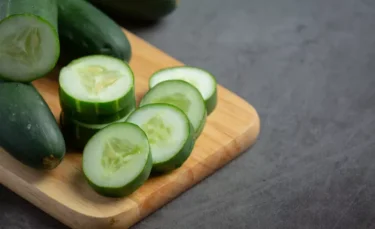
‘Cool as a cucumber’- heard that one, right? Cucumbers instantly hydrate the body and bring down the body heat. You can snack on them as a salad or with your favourite dip or mix them into a juice with ginger and some lemon. Due to their high water content, they aid in providing hydration by replenishing lost fluids and refresh the body1.
In my opinion, cucumber juice can work wonders for your skin. It’s not just refreshing to drink, but it might also have nourishing properties when applied topically. Cucumber juice may have a soothing effect on the skin, helping to calm down irritation and reduce swelling. And if you’ve spent too much time in the sun, cucumber may even help ease the pain of sunburn4.
Dr. Siddharth Gupta, B.A.M.S, M.D (Ayu)
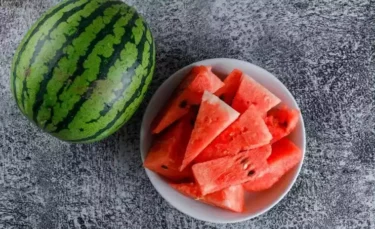
Watermelons sell like hot cakes in the summer. Juicy and full of nutrients that the body needs, the melons make for great summer companions. Not only do they hydrate but boost the body with power-packed nutrients like Vitamin A, Vitamin C, magnesium, potassium and fiber2.
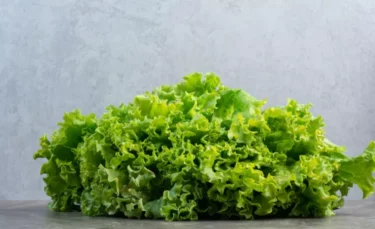
Green leafy vegetables are high in nutrient value, calcium and provide a good cooling effect on the body. Spinach, lettuce, Amaranth, Chinese cabbage and kale are your summer talismans or the safest go-to vegetables. They can be had in smoothies, salads or as a side dish in a meal.
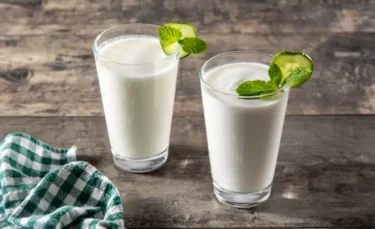
The Indian drink of the summer is buttermilk and the wisdom of the ages shines through. Not only does it keep you hydrated but it also is beneficial for digestion3. Have it with roasted cumin seeds, fresh coriander and some ginger to add zing to your day.
From experience, let me tell you about the magic of buttermilk! It’s like a magical potion that can work wonders for slowing down the ageing process. By nourishing our bodies with its rich nutrients, buttermilk may keep our arteries flexible and might also help combat age-related symptoms such as memory decline, vision problems, wrinkles, and greying hair. Cheers to a youthful and vibrant life with the goodness of buttermilk13!
Dr. Rajeev Singh, BAMS

The king of fruits is your best alternative to reducing body heat. There are several ways of incorporating it into your diet. Have it raw, as aam Panna- that quintessential summer drink, as chutney or curry. Mangoes are great for digestion, and can help deal with heat strokes.
From what I’ve seen, mango is much more than just a delicious fruit. It contains bioactive components that may have anticancer activity in various types of tumour cells10.
Dr. Smita Barode, B.A.M.S, M.S.
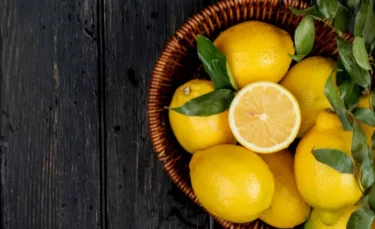
The easiest way to add flavour to your glass of water is to have it with lemon5. They not just hydrate your body but also add a healthy dose of Vitamin C to your diet, boosting your immune system and helping improve your skin health too! So, add a dash of lemon to your juices and salads or just drink it up as lemonade made with plain water and soak in its benefits.
From my perspective, I’ve learned that lemons are more than just a tangy fruit. They may hold incredible benefits for our eyes. The antioxidant properties of lemons might help protect your eyes from ageing and macular degeneration, which is fantastic news for maintaining healthy vision12.
Dr. Anuja Bodhare, B.A.M.S, M.D (Ayu)
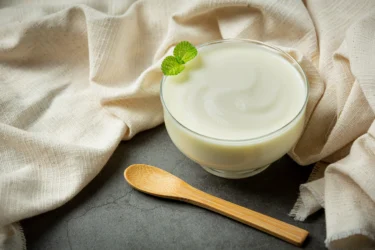
Packed with calcium, curd should be your go-to option for a healthy summer alternative to cold fizzy drinks. Rich with Vitamin B and gut-friendly bacteria, curd helps with digestion and soothes the body from within. Add flavour to it by mixing it with mangoes, strawberries and other fruits. It can also be had as Shrikhand.
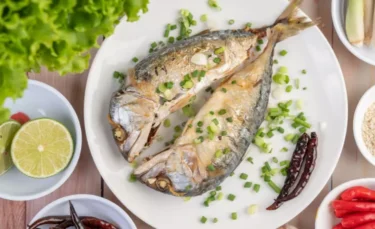
To boost the protein content in your diet without depending on meats, turn to fish. Rich in good fatty acids, fish makes for a tasty alternative, especially in summer. Since it generates less heat on consumption, you won’t feel lethargic and uncomfortably full, a feeling that usually we associate with after having chicken and meat dishes.
Also Read: Incredible Health Benefits Of Muskmelon
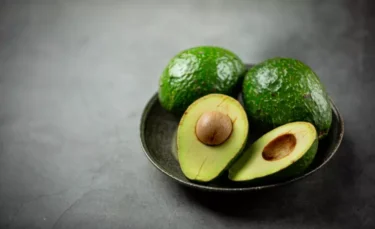
Avocado is a superfood in the true sense. The fruit is laden with a high amount of mono-saturated fatty acids which can help manage your cholesterol levels and support heart health while detoxifying the blood6. They are also easily digested, so your body will not need to create more heat to digest them. But if you have deranged lipid profile then do check with your healthcare practitioner to know the correct quantity for consumption.
I often recommend incorporating fruits and vegetables into your skincare routine to promote healthy skin. Avocado, in particular, has shown great potential in improving skin health. Its rich content of lutein and zeaxanthin, which are easily absorbed by the body, may help shield your skin from the harmful effects of UV rays11.
Dr. Ashok Pal, B.A.M.S
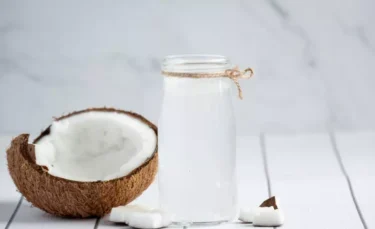
Coconut water is filled with electrolytes which help to keep you hydrated and cool. Rich in essential electrolytes, the power drink helps beat the heat during summer while keeping one hydrated and energetic throughout the day7. It can help keep you hydrated and boost your digestive capacity.
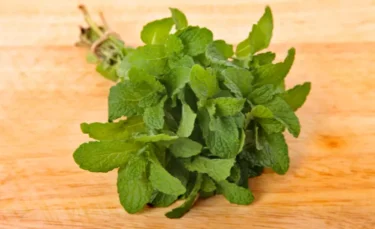
Mint is a herb that has cooling properties. One of the easiest herbs to find fresh in the market, both peppermint and spearmint are the best for consumption during summers. Mint helps in digestion without raising body heat. It also relieves nausea and headaches and eases depression and fatigue8. Making tea with mint leaves can help induce sweating to reduce body temperature. Mint combined with lime too makes a very refreshing drink for summer.
Also, you can add crushed mint leaves to water and have throughout the day. But make sure you allow the mint leaves to soak in the water for an hour before drinking it.
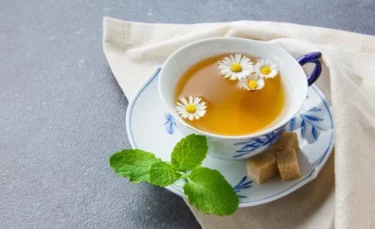
Chamomile tea is known for its antioxidant, soothing and anti-inflammatory properties. This herb can cool the body, ease insomnia, calm anxiety and soothe the digestive system9. It can be great for the skin and scalp as well, as it helps soothe inflammation, rashes, insect bites and even cuts and scrapes. It can help relax the muscles contributing to a soothing and cooling feel.
Remember, though most of these foods have been believed to be beneficial for cooling the body, further large-scale human trials can corroborate these findings.
Also Read: 13 Health Benefits of Watermelon and Recipes
Incorporating these 12 hydrating and nutrient-dense foods into your summer diet can help in keeping your body cool, maintaining electrolyte balance, and overall hydration. Rich in water content, essential vitamins, and antioxidants, these foods not only help lower core body temperature but also provide other health benefits. By making informed dietary choices, you can enhance your body’s resilience to heat and maintain optimal body function throughout the summer months. However, if you have any medical condition, its best to discuss with a health care professional before incorporating any new food item in your diet.
Also Read: 10 Health Benefits Of Black Coffee
Disclaimer: The information provided here is for educational/awareness purposes only and is not intended to be a substitute for medical treatment by a healthcare professional and should not be relied upon to diagnose or treat any medical condition. The reader should consult a registered medical practitioner to determine the appropriateness of the information and before consuming any medication. PharmEasy does not provide any guarantee or warranty (express or implied) regarding the accuracy, adequacy, completeness, legality, reliability or usefulness of the information; and disclaims any liability arising thereof.
Not only are summers in India immensely uncomfortable but they also have the potential to be quite lethal. The relentless sun beating down on you can wreak havoc with your body. But, do not despair. You can actually breeze through summer and keep yourself safe (and sane) and the only way to do that is by being aware of the illnesses that summer can trigger.

When the water content in your body depletes, you get dehydrated. Summer induces you to sweat a lot. Perspiration, as well as fluid loss through urination, means your body does not have enough water to sustain itself. You can tell you are on the verge of dehydration if you-
To prevent these symptoms from setting in, all you need to do is chug down plenty of water at regular intervals. You can also opt for green coconut water or ‘lassi’. Do not forget to munch on as many watery fruits as possible. Fruits like watermelons, grapes, papayas or mangoes can replenish your body’s water supply.

If the temperature soars beyond 40 degrees or celsius, you need to be very wary of the threat of sunstroke. This is actually categorized as a health emergency. Exposure to heat for a long stretch of time in conjunction with dehydration messes with the body’s ability to regulate internal temperature. This triggers sunstroke, which can damage your brain cells and be lethal.
You can foretell the onset of sunstroke from these symptoms-
To avert sunstroke, drink plenty of fluids, unfurl your umbrella when you step outside, avoid going out between 12 noon and 3 PM and wear comfortable cotton clothing.

Hay fever is a kind of allergy. When your body’s immunity cannot fight off foreign bodies that enter it, you break out in allergies. It is especially prevalent in early summer when flowers bloom and the pollen comes in contact with your body.
Some indicators of hay fever are:
You can reduce your exposure to allergens if you wear a pollution mask. If you are prone to allergies, consult with your doctor, some medicines can ease the symptoms.
Summer flu or flu as it is more generally known, is a highly contagious respiratory disease.
Dr. M.G. Kartheeka, MBBS, MD(Pediatrics)

Summer is the time when several dangerous microorganisms such as Salmonella and Clostridium thrive. And they multiply in food. That is why, unless you prepare your food and store it in the right way, you can come down with a severe case of food poisoning.
The signs of food poisoning are:
You can immunize yourself against food poisoning if you avoid undercooked meat, raw vegetables, fish that has not been cooked at high temperature and fast food. These foods are the breeding ground for harmful microorganisms.
Heat exhaustion, headache, dizziness, weakness, and hyperthermia are commonly seen in summer season. Getting adequate hydration and a limited exposure to sun should be tried as far as possible.
Dr. Ashish Bajaj, M.B.B.S., M.D. in Clinical Pharmacology and Toxicology

When you expose yourself to the sun for an extended duration, the harmful ultraviolet rays (UVA, UVB) can penetrate your delicate skin leading to a condition called sunburns. This condition is characterised by itchy, dry and red skin that can be accompanied by nausea, fever or chills. In cases where the burns are severe, there may be blisters and the skin may peel once the condition subsides.

One of the most deadly summer diseases in India is pox or chickenpox. This viral condition manifests as small fluid-filled blisters all over the body. This condition usually affects small children; however, sometimes adults who are diabetic, have a weakened immune system, have cancer or other such underlying medical conditions may get affected too. This contagious disease spreads through air-borne particles that are spread when an infected person coughs or sneezes, or if the caregiver comes in direct contact with the infected person. Sometimes, the infection may stay dormant until the apt weather conditions arise to support the infection.

Another deadly disease that you need to watch out for during the summer months is jaundice. This condition may affect anyone who consumes contaminated food or water. Hepatitis A virus gets into the body through the faeces-oral route, and this happens when you consume water or food that is contaminated with the faeces of an infected person. This condition can become severe and affect the liver too. The main symptoms of jaundice include yellowish skin, pale eyes, dark-coloured urine and itchy skin
Also Read: 7 Foods to Eat During Food Poisoning
Also, don’t forget to wash your hands before cooking or eating.
Summer can be a very taxing season for your body. But if you adopt a few measures you can easily fight off diseases and stay healthy.
Also Read: 8 Best Foods to Eat During Summer To Keep Your Body Cool
Disclaimer: The information provided here is for educational/awareness purposes only and is not intended to be a substitute for medical treatment by a healthcare professional and should not be relied upon to diagnose or treat any medical condition. The reader should consult a registered medical practitioner to determine the appropriateness of the information and before consuming any medication. PharmEasy does not provide any guarantee or warranty (express or implied) regarding the accuracy, adequacy, completeness, legality, reliability or usefulness of the information; and disclaims any liability arising thereof.
Links and product recommendations in the information provided here are advertisements of third-party products available on the website. PharmEasy does not make any representation on the accuracy or suitability of such products/services. Advertisements do not influence the editorial decisions or content. The information in this blog is subject to change without notice. The authors and administrators reserve the right to modify, add, or remove content without notification. It is your responsibility to review this disclaimer regularly for any change